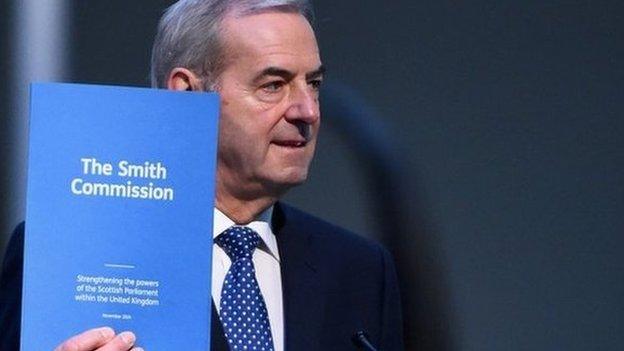Scotland Bill passes first House of Commons hurdle
- Published
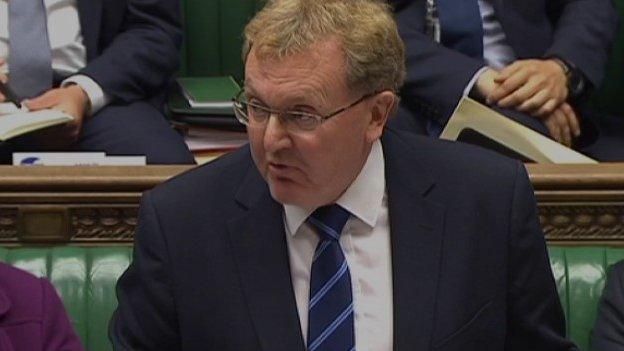
David Mundell said the bill delivered the Smith Commission recommendations
The bill which proposes further powers for Scotland has passed its first parliamentary hurdle without a vote.
The Scotland Bill was given its second reading in the Commons with no need for a division.
The proposals now move on to the committee stage, when MPs will be able to propose and debate amendments.
The bill follows the recommendations of the Smith Commission, which was set up after the independence referendum.
It would give Holyrood control over income tax rates and bands, a half share in VAT revenues and a greater say over welfare powers in Scotland.
The SNP said the bill falls short in almost every way.
The Secretary of State for Scotland, David Mundell, opened the debate by reiterating the UK government's commitment to deliver its promise of further devolution.
David Mundell: "I am absolutely clear that the Scotland Bill does fulfil in full the recommendations of the Smith Commission."
Stewart Hosie: "There will be a whole series of amendments to bring it [Scotland Bill] up to where it should be as a bare minimum."
Ian Murray: "What this does is give the Scottish Parliament much more power over taxes."
Mr Mundell said that if MPs voted for the bill at the second reading it would be subjected to four days of line-by-line scrutiny at the committee stage.
The Tory MP said he was happy to have his "feet held to the fire" because he was confident it delivered the Smith Commission recommendations in full.
He said: "It is the fulfilment of our manifesto commitment that the all-party Smith Commission agreement should be implemented in full.
"The fact that this bill was introduced on the first day after the Queen's Speech and that this debate is taking place on the first day since the general election speaks volume for the determination to honour that manifesto commitment and get on with the job."
The second reading allows MPs to discuss the principles of the legislation and provide parties with a platform to put forward their opinions.
The SNP, which has 56 of Scotland's 59 MPs, is calling for further powers over employment laws, the minimum wage and business taxes to also be devolved.
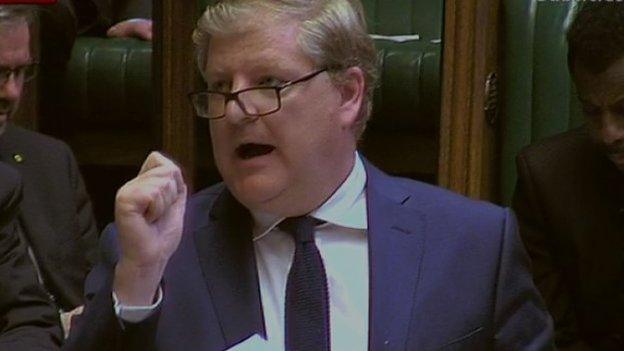
The SNP's Angus Robertson said the bill was a "watered-down" version of the Smith deal
SNP MPs made a number of interventions during the debate, claiming that the bill does not meet the Smith Commission recommendations.
The party's Westminster leader Angus Robertson told MPs the bill's genesis was a "breathless panic" from the pro-union campaigners in the days before the referendum in September.
He said the Vow of wide-ranging new powers for Scotland gave way to the Smith Commission agreement, a "watered-down" version of which has now become the Scotland Bill, Mr Robertson said.
"There is no doubt that the bill before us does not match the pledge of the campaign or the spirit or letter of the Smith deal," he said.
"The bill not only falls short but it too has been overtaken by another election a few weeks ago and an overwhelming and unprecedented SNP success."
Mr Robertson told MPs said the SNP would support amendments to the bill which called for Full Fiscal Autonomy for Scotland in the medium term.
That would mean Scotland would have the power to control all its own tax and spending except defence and foreign affairs.
'Struggling families'
Labour's Shadow Scottish Secretary Ian Murray told the House of Commons that after the bill was passed, the Scottish government would have immense power to change society for the better while continuing to benefit from the pooling and sharing of resources across the UK.
He said: "But, what is required now is the ideas and political will to deliver on that potential.
"That political will has always been a Labour priority, as demonstrated through the Calman and Smith Commissions, to deliver progressive change for Scotland.
"It appears like the SNP are desperate to be disappointed by this bill."
Speaking from New York, Scottish First Minister Nicola Sturgeon told the BBC her party would "seek to amend" the Scotland bill to "bring about full fiscal autonomy".
But she said she was "fully expecting" other parties to block the move. Labour has accused the SNP of "back-pedalling" on what it said had been a flagship policy.
Ms Sturgeon said her party was pursuing a "double track process": to make sure the Scotland bill delivers the further devolution recommended by the Smith Commission while building support for even greater powers for Holyrood.
The first minister said powers over the minimum wage, business taxes and employment law were priorities for the Scottish government.
- Published8 June 2015
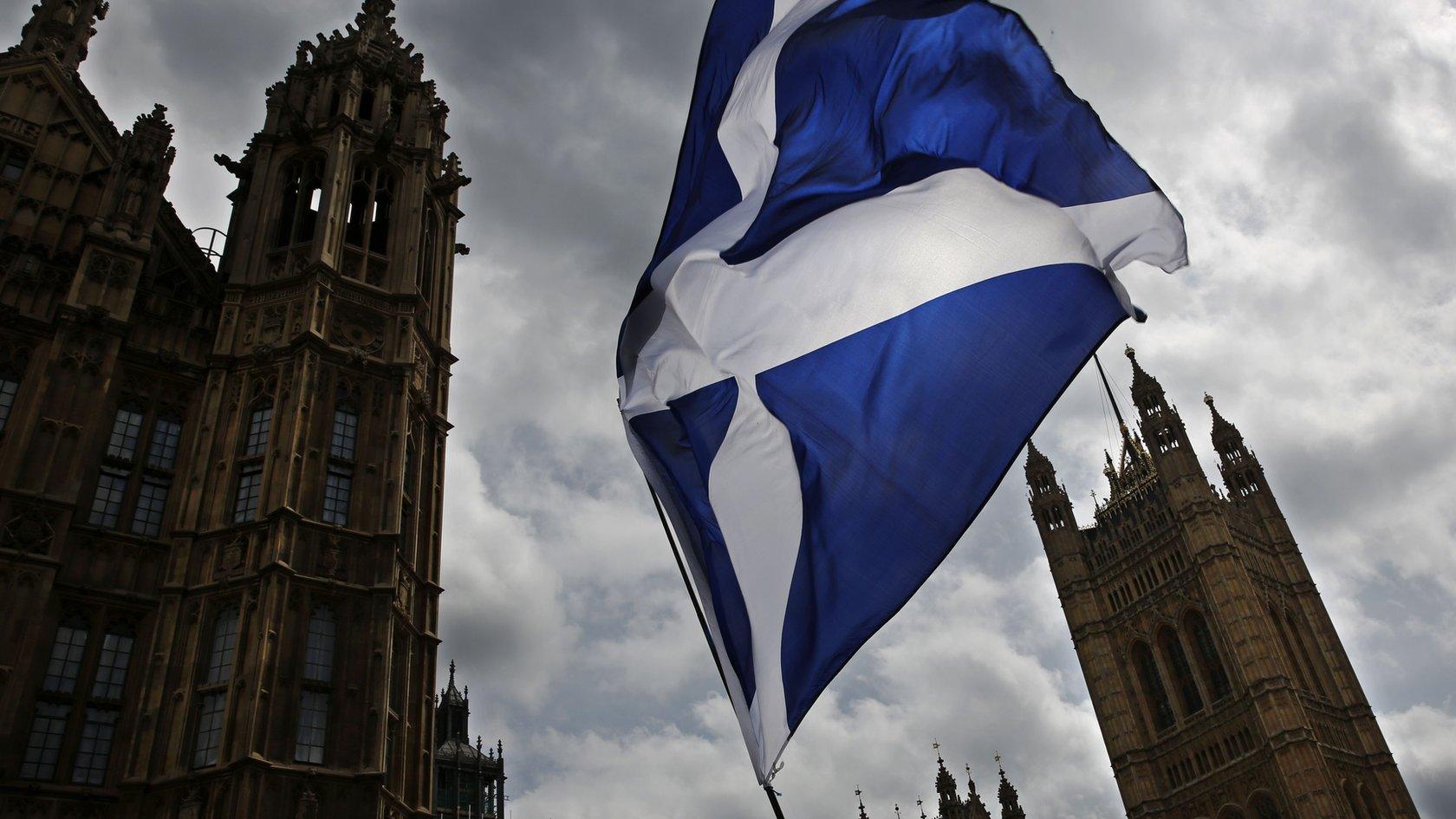
- Published7 June 2015
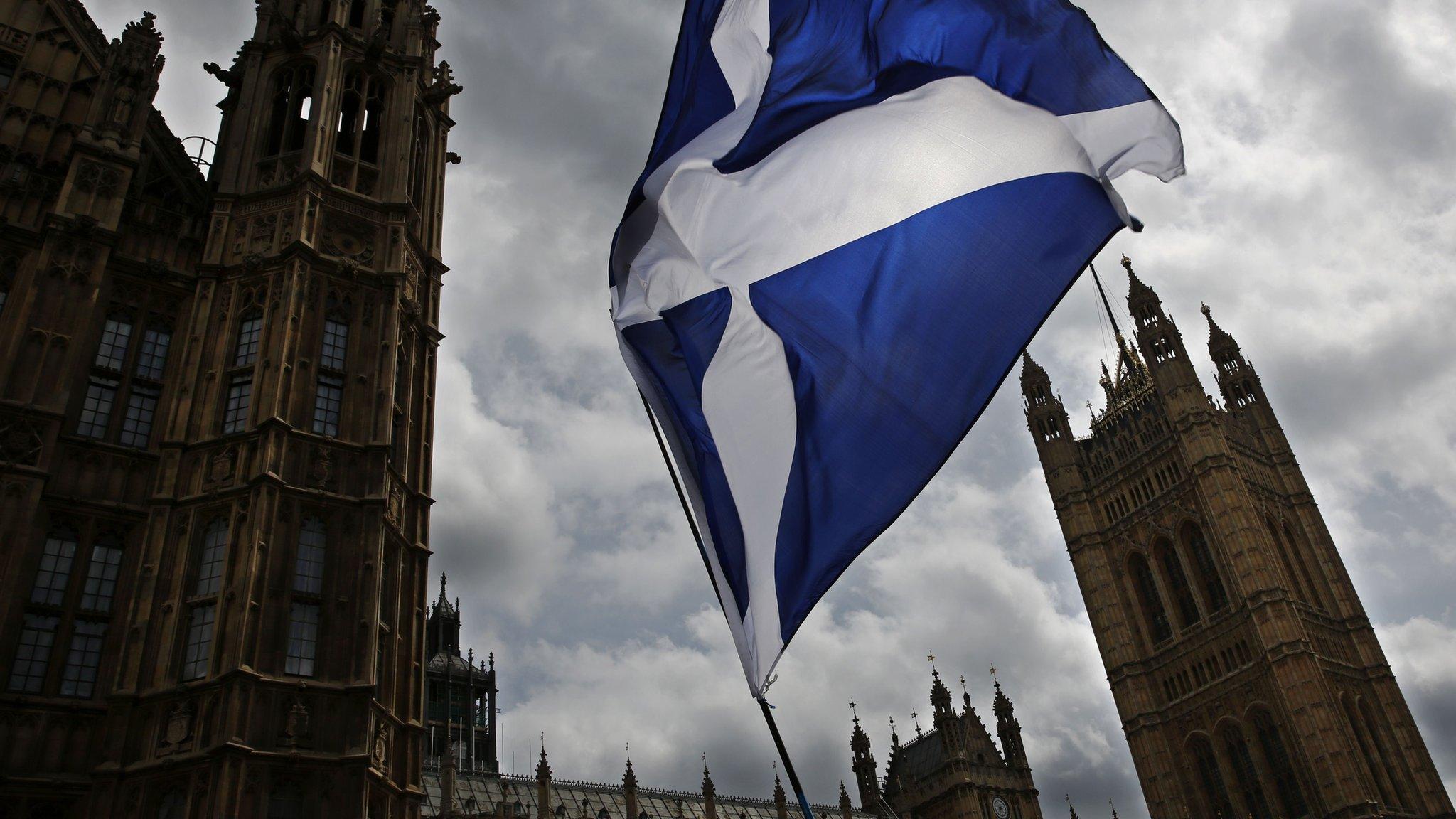
- Published28 May 2015
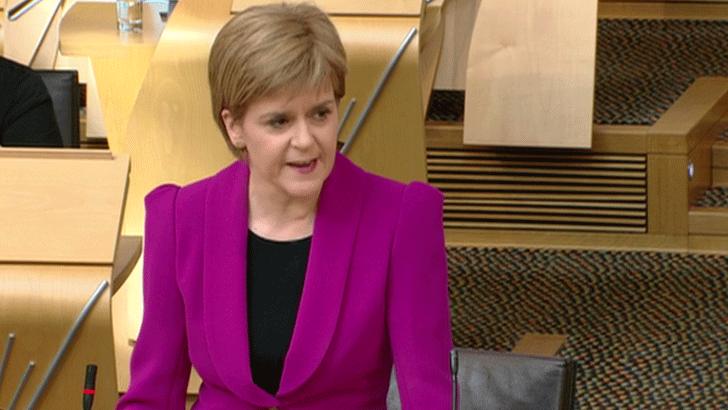
- Published27 May 2015
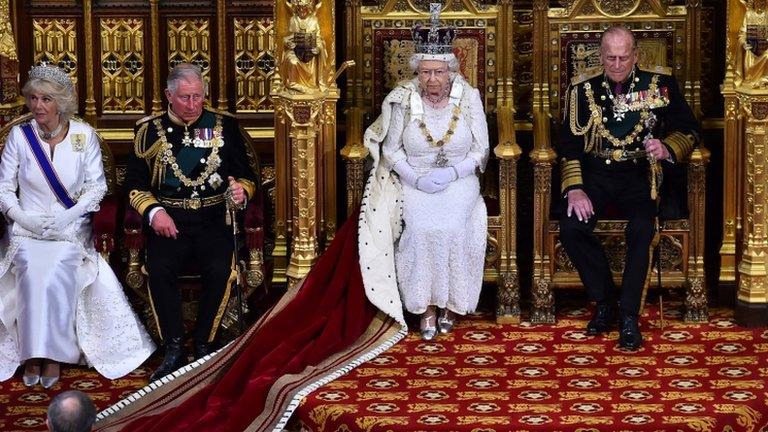
- Published14 May 2015
